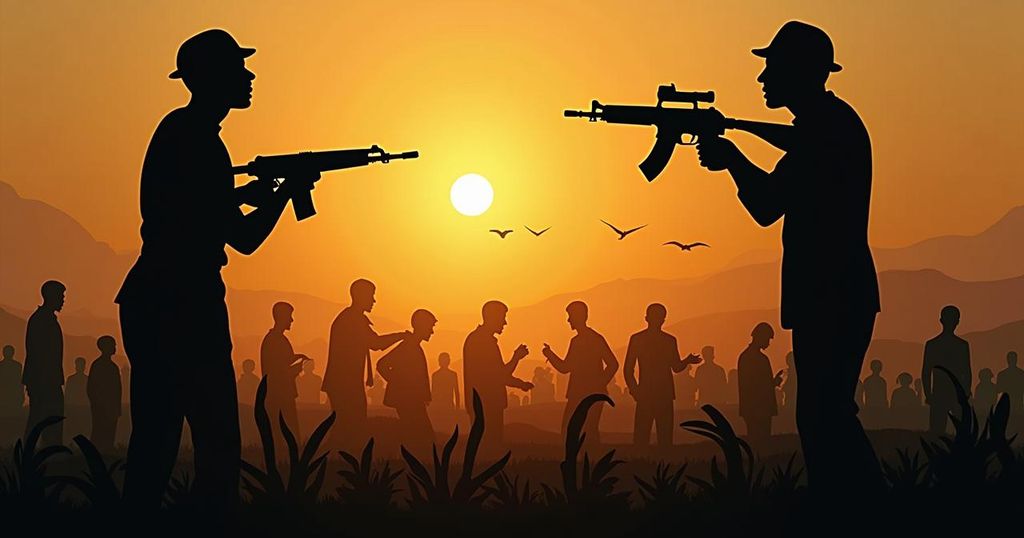The Escalation of Nigeria-South Africa Rivalry: A Historical and Cultural Perspective
Nigeria and South Africa’s rivalry has recently intensified, affecting sports, culture, and economic relations. Historical grievances, particularly post-apartheid tensions and incidents of violence against Nigerian nationals in South Africa, have further deepened this divide. Recent conflicts include issues surrounding Nigeria’s basketball team participation and xenophobic attacks related to cultural events. Despite significant trade relationships, both nations face challenges in overcoming their rivalry to achieve constructive collaboration.
The rivalry between Nigeria and South Africa, two prominent African nations, has escalated recently, spilling into various domains, including sports, music, and cultural contests. A recent incident involving Nigeria’s under-18 basketball team highlighted these tensions; Nigerian officials accused South Africa of attempting to obstruct their participation in an international competition. This discord is rooted in historical grievances that date back several decades, particularly following the end of apartheid in 1994, during which Nigeria was under military rule. Nelson Mandela’s critique of Nigeria’s government in the 1990s over human rights violations further deepened these rifts. Violence against Nigerians living in South Africa in 2019 exacerbated the situation, resulting in a diplomatic rift that saw the Nigerian government repatriating its citizens while retaliatory incidents targeted South African businesses in Nigeria. Attempts at reconciliation have been made, yet underlying animosities remain, as exemplified by the recent basketball conflict where Nigeria’s Junior D’Tigers faced last-minute complications in securing travel permits. Additionally, the rivalry has infiltrated cultural realms, such as the case of Miss South Africa contestant Chidimma Adetshina, who withdrew from her pageant due to xenophobic attacks related to her Nigerian heritage. The music industry also reflects these tensions, particularly with the rise of Afrobeats in Nigeria and Amapiano in South Africa, leading to disputes over awards and recognition, such as the recent MTV Video Music Awards. Despite these ongoing hostilities, both nations maintain significant economic ties, with South Africa being one of Nigeria’s largest trading partners. Experts argue that collaboration between the two could yield substantial benefits, emphasizing the importance of overcoming rivalry through shared Pan-African goals.
The long-standing rivalry between Nigeria and South Africa is a complex issue rooted in historical events and socio-political dynamics that have evolved over decades. Following the end of apartheid, Nigeria’s position under military rule created a juxtaposition against South Africa’s democratic government, contributing to mutual distrust. Noteworthy incidents, such as the execution of Nigerian activist Ken Saro-Wiwa, incited tensions, leading to retaliatory actions like the boycotts of sporting events. The rivalry has intensified in recent years due to xenophobic violence against Nigerians in South Africa and geopolitical maneuvering among African nations. A persistent critique reflects how past grievances influence modern interactions, particularly in the fields of sport, culture, and diplomacy.
The rivalry between Nigeria and South Africa illustrates not only historical grievances but also contemporary complications that impact their bilateral relations. Recent incidents in various sectors underscore the need for both nations to confront their past and pursue avenues for cooperation. Despite significant economic ties, the enduring nature of animosity suggests an imminent necessity for reconciliation efforts that transcend cultural and political rivalries. Moving forward, it is important for both countries to foster a collaborative spirit that acknowledges their shared African identity and potential for mutual advancement.
Original Source: arynews.tv




Post Comment